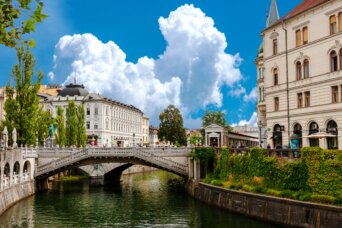- About
- Topics
- Picks
- Audio
- Story
- In-Depth
- Opinion
- News
- Donate
- Signup for our newsletterOur Editors' Best Picks.Send
Read, Debate: Engage.
The Green-Leftist party won the parliamentary election in Slovenia last Sunday, 24 April. Out of 1.7 million people eligible to cast their ballots, almost 70 percent voted, which was a historical turnout since the country gained its independence from former Yugoslavia in 1991.
A narrow advantage was expected in the pre-election polls as Slovenians have been protesting against their populist Eurosceptic government for more than two years. However, hardly anyone could have predicted that a newcomer in the elections, Robert Golob, would change the political landscape in a small EU and NATO member state so convincingly.
“It does not mean that we are the only ones; it means that people really want change,” Golob said, addressing the supporters after preliminary results. “So, tonight, let’s dance, and tomorrow is a new day. Tomorrow we start working hard to justify trust.”
He took over the small Green Party a few months ago, changed its name to the Freedom Movement, GS, and defeated Prime Minister Janez Janša’s Slovenian Democratic Party, SDS, by as much as 35 to 24 percent.
“The results are what they are. Congratulations to the relative winner,” Janša addressed his supporters on the election night.
During the election campaign, the opposition used to stress that the Slovenian government created a police state, using the excuse of the coronavirus pandemic over the last two years. Janša’s right-wing government is considered an autocracy. He is a fan of the former-U.S. President Donald Trump and an ally of the Hungarian nationalist prime minister Viktor Orban. He placed intense pressure on civil society organisations and the media, violating the freedom of expression. Besides confronting Brussels and backsliding democracy, Janša is known for corruption and interfering with independent public institutions.
“Slovenia has reached a point it has never been at before... It has become one of the biggest troublemakers [in the EU] with an authoritarian-style government and almost daily breaches of the rule of law, narrowing freedoms,” Ljubljana University professor Vlado Miheljak told AFP.
Slovenia’s election result echoed across the EU right after the French presidential runoff on the same day when Emmanuel Macron was reelected, defeating Marine le Pen. She put the far right closer to the presidency than ever before. That is also why the outcome of the Slovenian election is even more important.
Image by Eugene KuznetsovEugene Kuznetsov

